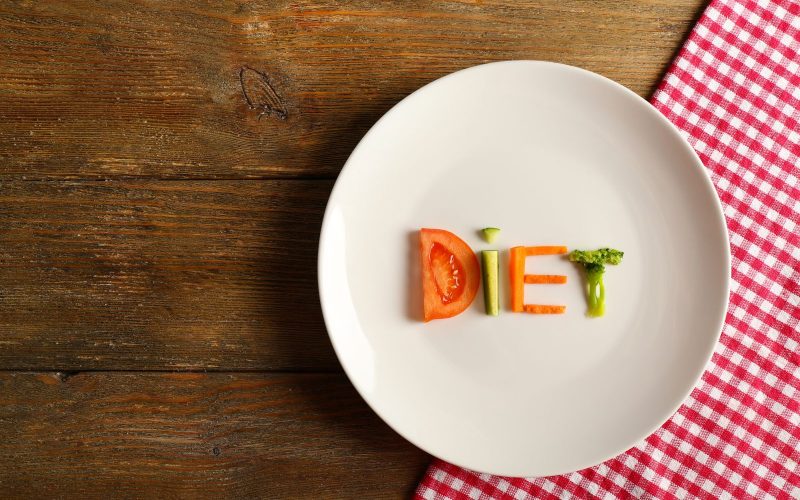In recent times, there have been a couple of scientific studies that reveals the bitter truth about how diets do not really work for weight loss.
While this is neither absolutely true nor absolutely false, I have come to realise that most people do really understand what a diet is.
A large fraction of the people who engage in dieting do so because they either want to lose weight, or they want to maintain their current weight and body shape. The remaining tiny fraction of people who go on a diet do it for medical reasons.
According to one of the recent studies on dieting, approximately 97% of individuals who decide to go on a weight-loss diet will either not lose any weight, or gain back all the weight they have loss within two years.
Those who go on a diet by doctor’s prescription are the only ones who may enjoy a permanent result especially since the purpose of dieting is not to shed some weight.
The big question, now that we know diets may not work perfectly for weight loss, is how the companies that now form the multi-billion dollar diet industry is reacting to the revelation? Well, To them, it’s business and they have a new tactic that proves to be working.
They now claim that what they sell is not a diet. They are now marketing their diet as “a lifestyle change.” Can you beat that?
Well, what exactly is a diet? While the definition you expect would be that diet is a food plan that helps you lose weight; In my opinion, a diet should be discovered as any food plan that is able to meet any of the requirements below:
1. It is impossible or difficult for you to stick with while you live your normal life, especially whenever you have to go on a vacation, to parties or during holidays .
For instance, if you engage in an eating plan that needs you to either go on a full fast or eat very few calories (like below 1400 per day), even only once weekly, it’s a diet.
If you are training to run a 5K, have to go off or probably “cheat” on your plan when you have to travel, especially at a cruise or resort where meals are included, or just eating a type of way and exercising every day, it’s called a diet.
2. It is required that you either avoid certain foods and drinks or to only eat some particular foods.
If you must completely avoid sugar, carbs, flour, or any other particular foods, it is a diet. Similarly, If you have to eat 100 grams of protein or any other class of food in a day, it’s a diet.
3. It is something you engage in if you want to lose weight, then stop completely when you achieve your desired weight or quit when you feel it isn’t working, whichever comes first.
In other words, if you find yourself temporarily restricting how much you eat or what you eat with the aim to lose weight, you are on a diet.
4. Any particular food plan that requires you to stop eating normal meals and replace them with fake or fortified foods such as shakes, bars, mixes, or pre-packaged food that is made by a commercial company to be consumed in specific quantities.
Do you find yourself having to take your own dinner with you to a friend’s house or pack your snacks to a party simply because you just can’t risk (as opposed to prefer not to) feeding on what will be served? that’s a diet.
5. A feeding plan that requires you to count calories, points or carbs.
6. There are days you may consider “cheat days” or there’s a chance of “cheating” on the feeding plan.
If you are required to restrict the consumption certain foods for health reasons, like if you are dealing Celiac disease and you get seriously sick if you eat gluten foods, that is obviously a different matter.
This means that this feeding pattern is one you must engage in all the time and you’d likely call it a diet. In such a situation, this feeding pattern is better referred to as a lifestyle change and not exactly a diet.
A lot of us have been fed with the diet mentality for a few decades now and that has made it difficult for us to even identify an actual diet when we see one. We can’t conclude that this is your fault.
The diet industry is a big one that effortlessly spends billions of dollars every year trying to make you see reasons why your body is not okay, and convince you that the way to fix yourself is by spending money on their diet.
So, what exactly is wrong with diets? Apart from the obviously, extremely high rate of diet failure?
1. Diets usually poses no relationship to what your body really needs. We all have unique needs, but diets tend to be created as a one-size-fits-all. With the diet industry, what you are needed to believe is that your body can not be trusted to let you know what it needs and when it needs it.
Maybe you are starting to think that way too, after many years of diets and deliberate deprivation, but it is far from true.
2. Most diets require a considerable level of deprivation, and therefore they are not considered to be sustainable for more than a short period of time. One thing that has been confirmed as unavoidable is the human nature of wanting what we can’t have.
That is the reason why most people can not stay on a diet for too long, and get frustrated enough to quit before they even achieve their goal.
3. Diets require that you have a willpower, and that too is not sustainable. We are super motivated at the start, but soon run out of the willingness as the day goes by. Notice how you find it easier to stick to a particular diet until, mid-afternoon or the next day ?
4. When you quit the diet or stop because you feel you’ve reached your goal, you still have majority, if not all, of the same so called unhealthy habits you used to engage in that made you really big or overweight in the first place.
Thus, all the weight you shed comes back quickly once you revert to your old ways of eating. Now that we know what a diet is, let’s look at some of the many types of diet that exist.
Types of diet
- Low fodmap diet
- Acid reflux diet
- Fatty liver diet
- Low cholesterol diet
- Cholesterol diet
- Gastroparesis diet
- Cabbage soup diet
- Optavia diet
- Blood type diet (A blood type diet/O blood type/)
- GERD diet
- Irritable bowel syndrome diet
- Low sodium diet
- Ketosis diet plan
- Dukan diet
- Boiled egg diet
- Grapefruit diet
- Diet soup
- Diverticulosis diet
- Pegan diet
- Military diet
- Gaps diet
- Gallbladder diet
- HMR diet
- Plant based diet
- Candida diet
- Vegetarian diet
- Lectin free diet
- Bland diet
- Gout diet
- Cruise control diet
- Mind diet
- Pescatarian diet
- Liquid diet
- Flexitarian diet
- Egg diet
- Fruit diet
- Dubrow diet
- Golo diet
Please note that before you adopt any diet or exercise routine, it is essential that you discuss with your doctor first. Each person has a unique body, so what works for me may not work the same way for you.
In order words, outcome may differ according to body type and the influence of many other factors. Let’s know what you think about diets, a comment below.








